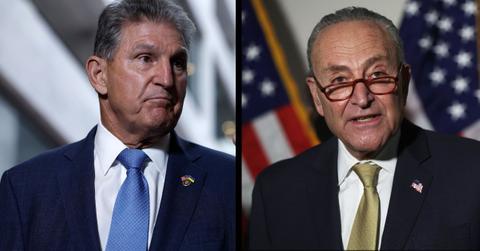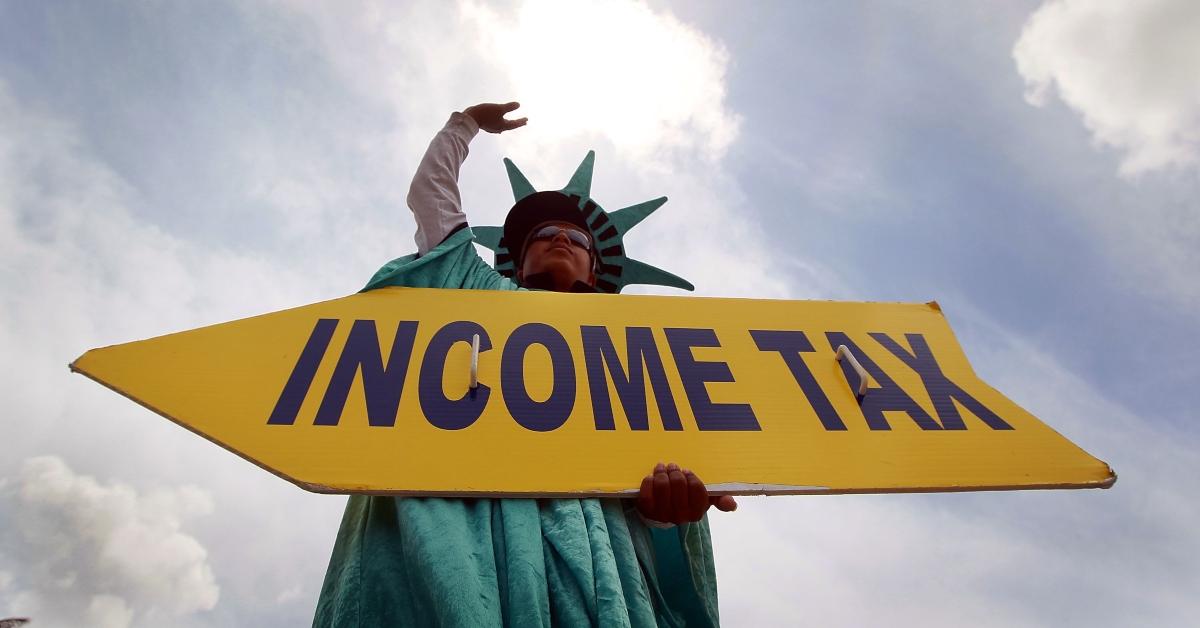Schumer-Manchin Agreement Would Narrow Carried Interest Tax Loophole
Wealthy hedge fund managers shouldn’t be paying a lower tax rate than their employees. We'll explain the carried interest tax loophole further.
Aug. 1 2022, Published 2:14 p.m. ET

Wealthy hedge fund managers shouldn’t be paying a lower tax rate than their employees, and they won’t if Senate Majority Leader Chuck Schumer (D-NY) and Senator Joe Manchin (D-WV) have anything to say about it. An agreement by the two Democrats last week calls for narrowing the carried interest tax loophole some of the richest people in the world have been using to pay lower taxes. Here’s the carried interest tax loophole explained further.
Carried interest is the share of profit on an investment that a hedge fund manager or private equity executive takes as compensation. The carried interest tax loophole enables those executives to claim the compensation as investment gain rather than income subject to a higher tax rate.

The term “carried interest” got its roots in the goods trade back in the 16th century. Ship captains who carried goods from Europe to the Americans were paid a 20 percent share of the profit from those goods.
Today, the carried interest is a part of the compensation earned by Wall Street firms that manage venture capital, private equity funds, and hedge funds. They typically earn an annual management fee of 2 percent of investment capital and carried interest of about 20 percent of the fund’s investment returns.
Carried interest is taxed less than income.
Currently, carried interest is taxed as a profit from long-term investment rather than pay for performing a service in managing other people’s money, which it essentially is. So, instead of paying an income tax rate of 37 percent that would apply to top earners, the investment executive pays the lesser 20 percent long-term capital gains tax rate.
A 20-percent capital gains tax is even less than a middle-income family would pay in income taxes. In 2022, the marginal tax rate was 22 percent for single taxpayers earning between $41,775 and $89,075 and married couples earning between $83,550 and $178,150.
Warren Buffett and Donald Trump called for changing the loophole.
For years, many on both sides of the political aisle have called for changes in the carried interest loophole. Billionaire investor Warren Buffett, who admits he benefits from the loophole, called for a change in a 2011 New York Times op-ed piece titled, “Stop Coddling the Super-Rich.” In his 2010 tax bill, Buffett said he paid only 17.4 percent of his taxable income, compared to employees in his office who paid an average of 36 percent in taxes.
“While the poor and middle-class fight for us in Afghanistan, and while most Americans struggle to make ends meet, we mega-rich continue to get our extraordinary tax breaks,” Buffett wrote.
Trump narrowed the loophole in 2017.
Even former President Donald Trump tried eliminating the carried interest tax loophole in 2017. However, lobbyists and lawmakers on Capitol Hill fought to keep it, The New York Times reported.
Trump’s administration successfully extended the holding period for investments that qualify for the tax break from one to three years, the Times reported.
The Schumer-Manchin agreement aims to extend that holding period even longer to five years. Democrats say narrowing the window would force more income to be taxed at higher income tax rates and raise an estimated $14 billion in the next decade, the Times reports.
